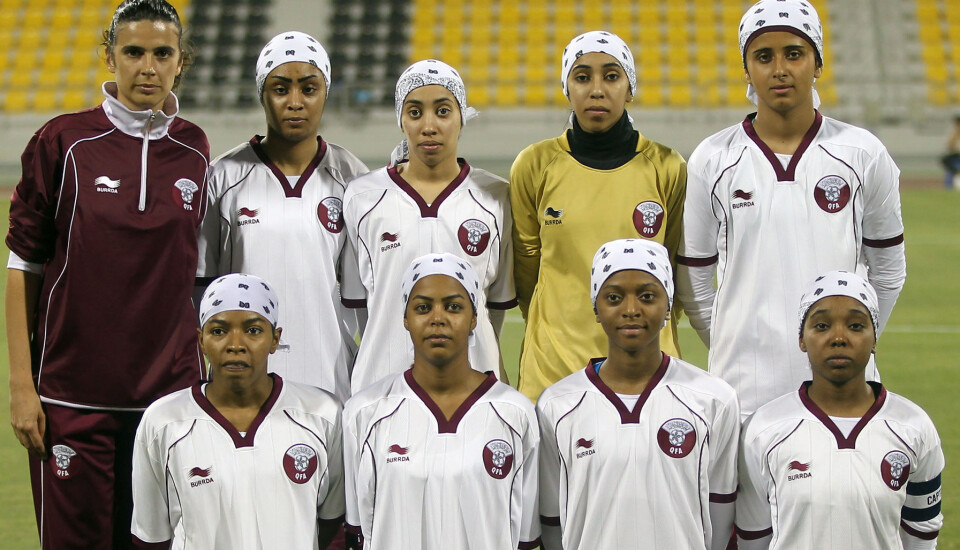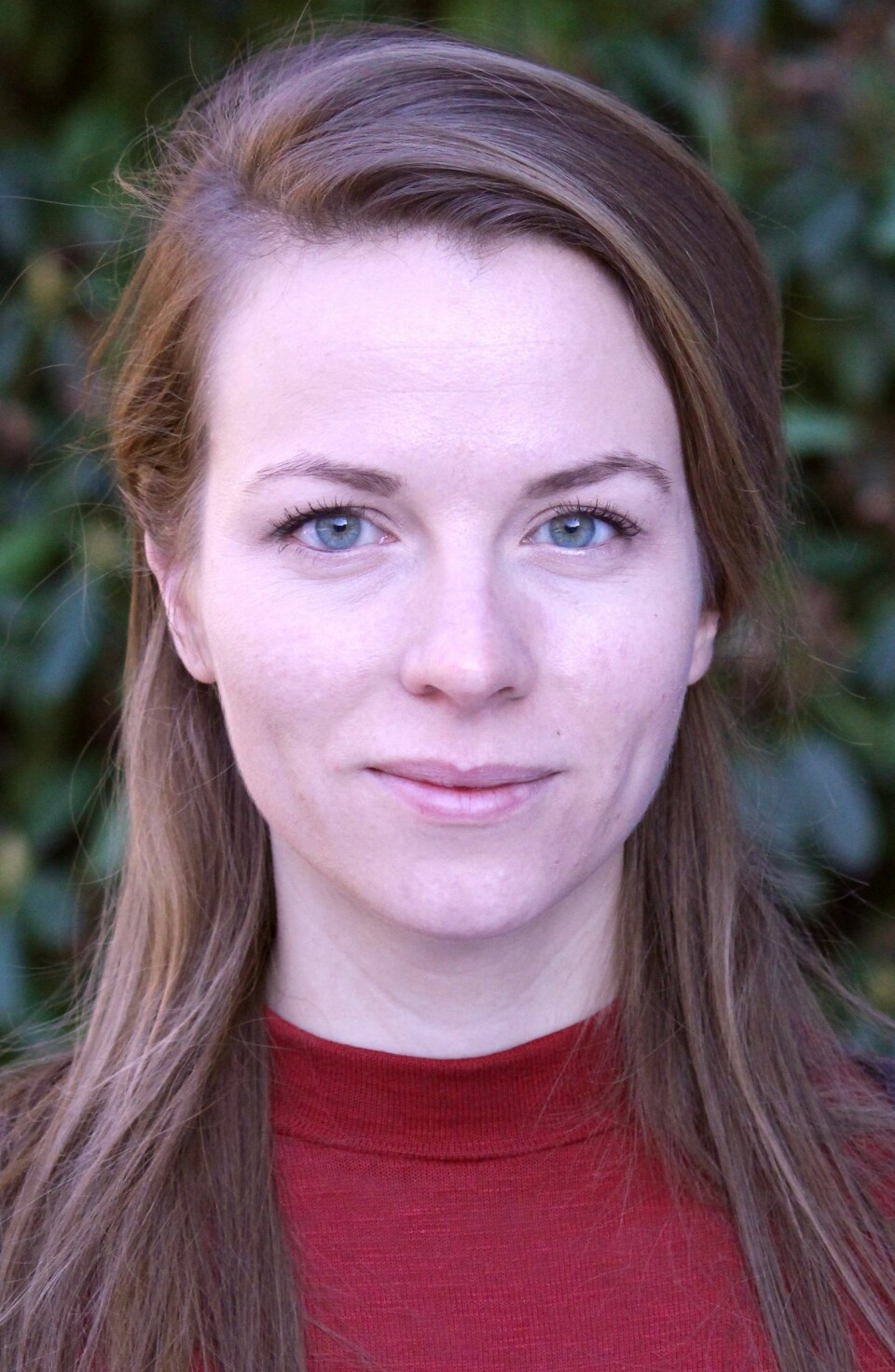
Arabic women’s football: supported by the regime, but still breaking social norms
Norms and legislation strictly limit women's lives in Saudi Arabia and Qatar. Nevertheless, women find ways to realise themselves – like by playing football.
In the autumn of 2019, the first official futsal tournament – a variant of indoor football – for women in The Arab States of the Persian Gulf took place. This was the first time that a Saudi Arabian women’s football team represented its nation in an official international football tournament.
“Many of the same women that I have spoken to were there; women who have done this for many years, and who were now finally able to represent their country for the first time. It was not the World Cup or any big international tournament, but for these women, this was a huge step,” says Charlotte Lysa.
The country without women’s sports
Lysa first met female football players in Saudi Arabia when she worked as an intern at the Norwegian embassy in the Saudi capital Riyadh while she was a master’s student in 2014. She decided to explore the phenomenon further in her PhD project.
“Formally, no sports were offered for women at all in Saudi Arabia at that time, but I was told about a women’s football league that had been active for several years,” she explains.
“The league was founded and built solely by young women. They ran the league unofficially and without support from the authorities or any others. This evoked my interest.”

Until now, Saudi Arabia has not had an official women’s football team. Its neighbouring country Qatar, tiny compared to Saudi Arabia both in terms of geographical area and population, has had a women’s football team since 2010. But the recruitment is slow.
This does not mean that women in these countries do not play football, because they do. Football is the most popular sport among both women and men, and many girls both watch and play football at home when they grow up. But women encounter various obstacles when they attempt to practice the sport outside of the home.
Football as a window to society
“The connection between football, society and politics is obvious,” says Lysa.
“Football is an enormous social and political force in this region, but the gender perspective has often been missing, so this development is exciting to observe.”
She explains that it is interesting to use small and seemingly narrow case studies such as women’s football as windows into larger societal and political dynamics within Saudi Arabia and Qatar.
“One thing is the fact that little research has been done on women’s football in these countries, but the social life has not been much explored either. Few researchers do field-work there, and few scholars engage in social questions on a qualitative level,” she says.
“I am not saying that we shouldn’t focus on human rights and war, but for those who live in these countries, much more affects their everyday life”.
Lysa did her fieldwork in both Saudi Arabia and Qatar. She interviewed women who played football and others who were involved in the sports sector, and she attended football practice and matches as audience.
She was particularly interested in exploring how the women handled the power structures within which they operated, and where they encountered resistance and support.
“The difference in size is interesting. In such a big country as Saudi Arabia, it is perhaps easier for people to become invisible in the crowd. But at the same time, the institutional barriers are more significant,” she says.
“In Qatar, the authorities welcome and encourage women’s sports, but on the other hand, the social barriers may be huge.
Organise themselves
In Qatar, she has primarily studied young women under education within what is referred to as ‘Education City’. This is a campus area in Doha with various branches of western education institutions.
“These women often presented themselves as coming from families that were open and supportive of what they were doing, and are probable not representative of all women in Qatar,” says Lysa.
The authorities make an effort to establish an official women’s football league and even a national team. But recruitment has proven to be difficult. One reason for this is probably that the recruitment base is relatively small – less than fifteen per cent of the country’s population of nearly three million are Qatari citizens. It is also difficult for women to practice the sport in a socially acceptable manner.
“They report about a strong social pressure to spend their time on studies and family, but also in terms of ideals of femininity. The official leagues are associated with a type of football that is more masculine, and if you practice such sports you may be accused of not being heterosexual,” says Lysa.
“In addition, you are required to play matches within settings that are not gender segregated, and few women would feel comfortable being exposed to men while dressed in a football strip. They do not want to break with such social norms, perhaps out of consideration for their family.”
Her interviewees’ solution to this challenge was to play football in a league organised by themselves at university. Thus, they avoided accusations about wasting their time, since they could play football while they were on campus anyway. And since they organised the league themselves, they were able to keep the men out of it, which gave them the freedom to dress the way they wanted.
In this way, the women managed to create a space within which they were enabled to define what they wanted their football to be.
Reforms in Saudi Arabia
In Saudi Arabia, the institutional obstacles have changed a lot over the past years. Although there has not been a direct ban against women’s football, it has been difficult in practice. It has been hard to find both coaches and physical spaces to play without support from the general society.
For the women Lysa spoke to it was important not to attract attention, as they were afraid to provoke and consequently experience even more difficulties.
But during the last couple of years, particularly after Mohammad bin Salman became crown prince in 2017, the regime has actively made efforts to appear more modern on several areas. Women are now allowed to drive a car, and they are permitted as audience on the football stadium.
“The stadium was rebuilt to include family sections that can seat women who come alone or accompanied by men. This was an important change symbolically, since the sports arena has formerly been a primarily masculine arena.”
But other changes have been equally important, although they have received less attention, according to Lysa. The football association now has female members, and princess Reema bint Bandar Al Saud, who is currently ambassador to the US, became responsible for women’s sports in 2016.
“The fact that women have been included in a commitment to prioritise physical activity and sports has also resulted in a larger focus on grass-root sports. There are campaigns working to promote physical education teacher training and family sports days where children can try out various activities.”
Public health and economy
Thus, according to the female football players that Lysa has spoken to, many things have changed since the first time she met them back in 2014. They can now announce their activities openly on the social media, since they have the authorities’ support.
One of the reasons behind the changes is public health; another is economy, according to Lysa.
“Fitness centres, sports equipment, audience events – fifty per cent of the population has been excluded from these industries. When the authorities allow for women’s participation, these industries may experience significant growth,” she says.
“So this is part of a financial development plan. And particularly in Qatar, but also in Saudi Arabia, it is about international appearance. The women’s rights issue has been an ugly stain on these countries’ image.”
No either/or
Even though the women that Lysa has interviewed have broken social norms by playing football, they should not be characterised as opponents of the regime. Instead, they have negotiated a wiggle-room within the existing structure.
“It depends on how you define resistance. During the time when it was nearly impossible to practice women’s football in Saudi Arabia, it was of course a type of resistance if you did it anyway,” she says.
“But they did not revolt in the streets; they did not confront the norms in the same way as the women who fought for the right to drive a car.”
IIn this situation, it is not right to define resistance as a dichotomy in which there is either total confrontation or full acceptance, according to Lysa.
“If you leave public opposition and demonstrations aside – what does people actually do if they are unhappy with the status quo? These women fear that there will be more restrictions if they become too confrontational,” she says.
“As long as they do not push it too far, they may create opportunities to do what they please. And they experience that it is not the authorities that oppose them, but rather what they refer to as ‘conservative forces’ in society.”
At the same time, she emphasises that the reforms take place within a narrow field, and should not necessarily be regarded as a sign of larger political changes.
“One can easily start thinking in terms of dichotomies when talking about reforms. The fact that women are now allowed to drive a car in Saudi-Arabia for instance, does not necessarily involve democratisation, it may just as well be the other way around,” she says.
“The female football players, who are not confronting a political system, have now gained more space within which they can carry out their activities. At the same time, many of the women who were involved in the struggle for the right to drive a car are now in prison. There is no law of nature that women’s right to drive leads to political pluralism.”
Translated by Cathinka Dahl Hambro.
This article was first published on Kilden kjønnsforskning.no
































